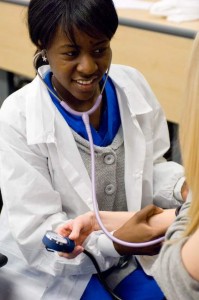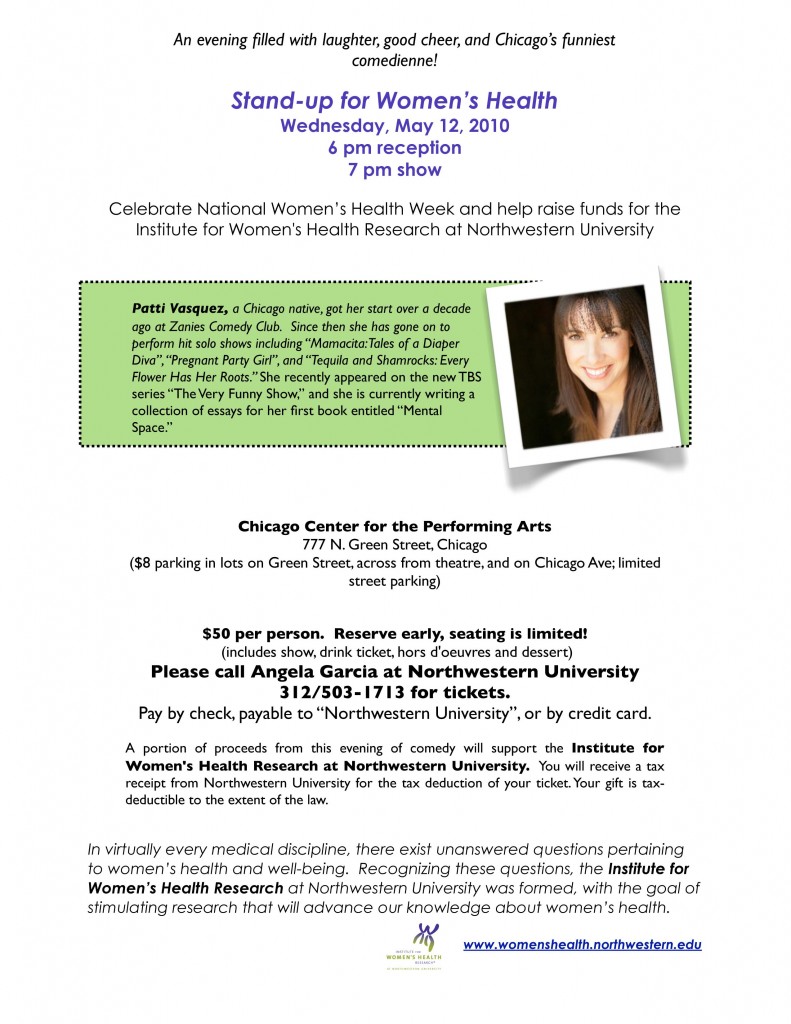 You may have seen the cover article on our Spring Newsletter titled “Spotlight on Obesity: Is it just your weight?” This article focuses not only on the epidemic of obesity in the U.S. but also on the serious health conditions that may result from obesity. Although obesity is on the rise, however, eating disorders such as anorexia and bulimia still continue to be a problem, especially in women. According to the National Alliance for the Mentally Ill (2003) 90 percent of individuals with eating disorders are women between the ages of 12 and 25. Eating disorders are closely correlated with depression, substance abuse, and anxiety disorders, so it is important to diagnose and treat early.
You may have seen the cover article on our Spring Newsletter titled “Spotlight on Obesity: Is it just your weight?” This article focuses not only on the epidemic of obesity in the U.S. but also on the serious health conditions that may result from obesity. Although obesity is on the rise, however, eating disorders such as anorexia and bulimia still continue to be a problem, especially in women. According to the National Alliance for the Mentally Ill (2003) 90 percent of individuals with eating disorders are women between the ages of 12 and 25. Eating disorders are closely correlated with depression, substance abuse, and anxiety disorders, so it is important to diagnose and treat early.
The most common disorders are anorexia nervosa, bulimia nervosa, and binge-eating. You may already be familiar with these disorders, but they are listed below along with some the complications that may arise.
Anorexia nervosa is a disorder categorized by obsession with weight and food causing individuals to starve themselves or to exercise excessively in order to maintain a weight typically far below the normal weight range for their height and age. Complications of anorexia include, heart problems, anemia, permanent bone loss, malnourishment, absent menstruation and death.
Bulimia nervosa is categorized by periods of binge eating followed by vomiting or excessive exercise to get rid of extra calories or weight. Individuals with bulimia are similarly obsessed with weight and food. Both disorders are closely tied to self-image and thus may be difficult to treat. Complications of bulimia include heart problems, digestive problems, tooth decay, absent menstruation and death.
Binge-eating disorder is still not considered a psychiatric condition, but may be treated similarly to bulimia and anorexia. Binge-eaters tend to consume unusually large amounts of food on a consistent basis. This disorder may lead to obesity and complications associate with obesity such as high blood pressure, diabetes, and heart disease. In addition binge-eating disorder can cause psychological problems such as depression and suicidal thoughts.
Although the term eating disorder usually means one of the three disorders listed above, the term disordered eating is used to describe a variety of eating abnormalities that do not necessarily fall into, or are not severe enough to be categorized as one of the typical eating disorders. Disordered eating may not be as serious in terms of complications, but it may lead to more serious eating disorders if left untreated or unaddressed. According to a survey conducted by Self Magazine and the University of North Carolina, as many as 65% of American women between 25 and 45 exhibit disordered eating behaviors. Women should not be afraid to seek help for issues they may have with eating, even if they do not think it is a severe eating disorder. As peers, we should be supportive of women who are suffering from these diseases, and help them to overcome their issues.
 cancer, but they are worried about getting wrinkled and being unattractive," said June Robinson, a professor of dermatology at Northwestern University and senior author of a May 17 paper in Archives of Dermatology. "The fear of looking horrible trumped everything else," said Robinson.
cancer, but they are worried about getting wrinkled and being unattractive," said June Robinson, a professor of dermatology at Northwestern University and senior author of a May 17 paper in Archives of Dermatology. "The fear of looking horrible trumped everything else," said Robinson.
 You may have seen the cover article on our Spring Newsletter titled “Spotlight on Obesity: Is it just your weight?” This article focuses not only on the epidemic of obesity in the U.S. but also on the serious health conditions that may result from obesity. Although obesity is on the rise, however, eating disorders such as anorexia and bulimia still continue to be a problem, especially in women. According to the National Alliance for the Mentally Ill (2003) 90 percent of individuals with eating disorders are women between the ages of 12 and 25. Eating disorders are closely correlated with depression, substance abuse, and anxiety disorders, so it is important to diagnose and treat early.
You may have seen the cover article on our Spring Newsletter titled “Spotlight on Obesity: Is it just your weight?” This article focuses not only on the epidemic of obesity in the U.S. but also on the serious health conditions that may result from obesity. Although obesity is on the rise, however, eating disorders such as anorexia and bulimia still continue to be a problem, especially in women. According to the National Alliance for the Mentally Ill (2003) 90 percent of individuals with eating disorders are women between the ages of 12 and 25. Eating disorders are closely correlated with depression, substance abuse, and anxiety disorders, so it is important to diagnose and treat early.
 Last night, the
Last night, the 







 A recent article by Appel and Anderson in the
A recent article by Appel and Anderson in the 